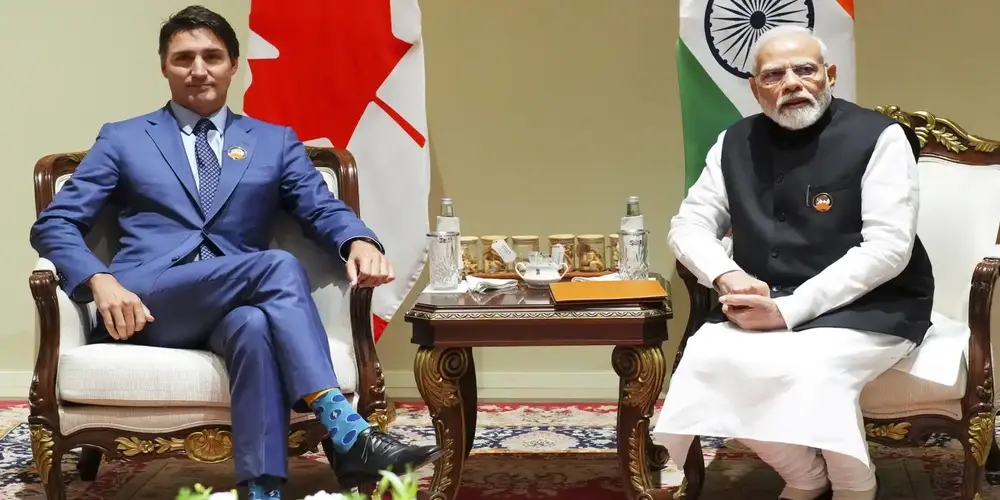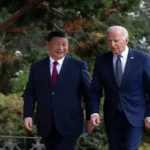In the midst of the escalating diplomatic tensions between India-Canada, there is growing concern that Ottawa could face a substantial economic setback amounting to $700 million (~Rs. 58 billion) in 2024. This dire projection comes from research conducted by an independent think group with offices in New Delhi and New York. At the heart of this potential economic shock lies the apprehension among Indian students about their safety, which may lead to a decrease in the number of students choosing Canada as their preferred destination for higher education.

The India-Canada diplomatic relationship has been deteriorating steadily, and this economic fallout serves as another grim facet of their ongoing feud.
Indian Students: A Vital Component of Canada’s Educational Landscape
To comprehend the gravity of this economic concern, it’s essential to recognize the significance of Indian students in Canada. Indian students often travel to Canada in three cohorts each year: January, May, and September. According to Robinder Sachdev, the president of Imagindia, a prominent think tank, approximately 200,000 Indian students arrive in Canada annually. In fact, India constitutes the largest source of international students in Canada.
A notable portion of these students, around 66,000, choose the January intake. However, the ongoing diplomatic standoff between India-Canada has cast a shadow of fear over these students, potentially discouraging them from selecting Canada as their study destination. Each Indian student studying in Canada contributes an estimated $16,000 (~Rs. 1.3 million) in total expenses, encompassing expenditures like laptop purchases, housing costs, bank security, and airfare. Over two years of study and residence translates to approximately $53,000 (~Rs. 4.4 million) per student. This substantial financial input per student significantly bolsters the Canadian economy, amounting to $69,000 per student.
The Economic Impact of a Potential Decline in Indian Students
If the January batch alone witnesses a modest five percent decline in the number of Indian students (equating to 3,300 fewer students), it would inflict a considerable blow to the Canadian economy, resulting in a loss of at least $230 million (~Rs. 19.1 billion). However, the implications extend beyond just one intake. If a similar decline occurs in the May and September batches, the overall economic loss for Canada could escalate to a staggering $690 million (~Rs. 57 billion).
Furthermore, the reduction in visa applications from Indian students would lead to lower visa fees, amounting to a projected loss of $3 million (~Rs. 249 million) for the Canadian High Commission in India. In 2022, approximately 225,000 Indian students were granted visas to study in Canada.
Additionally, Indian students often contribute to the Canadian economy after completing their studies by working in local companies. A decline in the number of Indian students traveling to Canada could result in a loss of $34 million (~Rs. 2.8 billion) for small Canadian firms that benefit from their contributions.
Considering all these factors, the research estimates a substantial economic setback of $727 million for the Canadian economy as a whole.
India-Canada Diplomatic Developments and Escalating Tensions
A series of tit-for-tat moves and strained relations have marked the diplomatic tension between India-Canada:

- Canada’s Diplomatic Shift: Canada recently relocated most diplomats stationed in India outside of New Delhi, relocating them to either Kuala Lumpur or Singapore. This decision came in response to India’s request for Ottawa to reduce its diplomatic staff by more than half.
- Trudeau’s Allegations: Canadian Prime Minister Justin Trudeau publicly expressed suspicions that Indian agents were involved in the killing of a Sikh separatist leader in a Vancouver suburb, escalating tensions between the two nations.
- Trade Treaty Pause: Canada abruptly halted negotiations on a proposed trade treaty with India, a move that caught many by surprise, predominantly after both countries had previously expressed intentions to finalize an initial pact in the near future.
- Concerns Surrounding Sikh Separatist Protests: Prime Minister Narendra Modi conveyed concerns about Sikh separatist protests in Ottawa to PM Trudeau, further complicating the India-Canada diplomatic landscape.
- Trade Mission Postponement: Canada postponed a trade mission to India, initially scheduled for October, led by Trade Minister Mary Ng. The decision to halt trade treaty talks and delay the mission stemmed from concerns surrounding the Sikh separatist leader’s murder.
- Allegations and Expulsions: Trudeau’s assertion of “actively pursuing credible allegations” linking Indian government agents to the killing of the Sikh leader was met with a dismissive response from India. Both countries subsequently expelled diplomats and repatriated them.
- Global Concerns: India issued a statement urging its citizens in Canada to exercise caution, while the US, Australia, and Britain expressed concerns about the India-Canada diplomatic dispute.
- Economic Implications: The India-Canada diplomatic row has also affected economic aspects, with India’s JSW Steel Ltd. slowing down its process of purchasing a stake in the steelmaking coal unit of Canada’s Teck Resources. However, other sectors, such as the potash industry and lentil sales, have reported varying degrees of impact, with some needing more effect on their operations.
"In moments of tensions—because indeed there are tensions between both our governments—more than ever it's important that diplomats be on the ground," says Foreign Affairs Min. Mélanie Joly when asked re: reports India has asked Canada to remove 41 of its 62 diplomats.#cdnpoli pic.twitter.com/c226XBLW3q
— CPAC (@CPAC_TV) October 3, 2023
A Complex Web of Diplomatic and Economic Ramifications
The India-Canada diplomatic dispute has created a complex web of diplomatic and economic repercussions. As India-Canada diplomatic relations continue to fray, the potential economic consequences for Canada are becoming increasingly evident. The fate of Indian students’ choices regarding their study destination in the coming years may have far-reaching economic effects, making it imperative for both nations to find a resolution to their differences and restore stability to their diplomatic ties.




